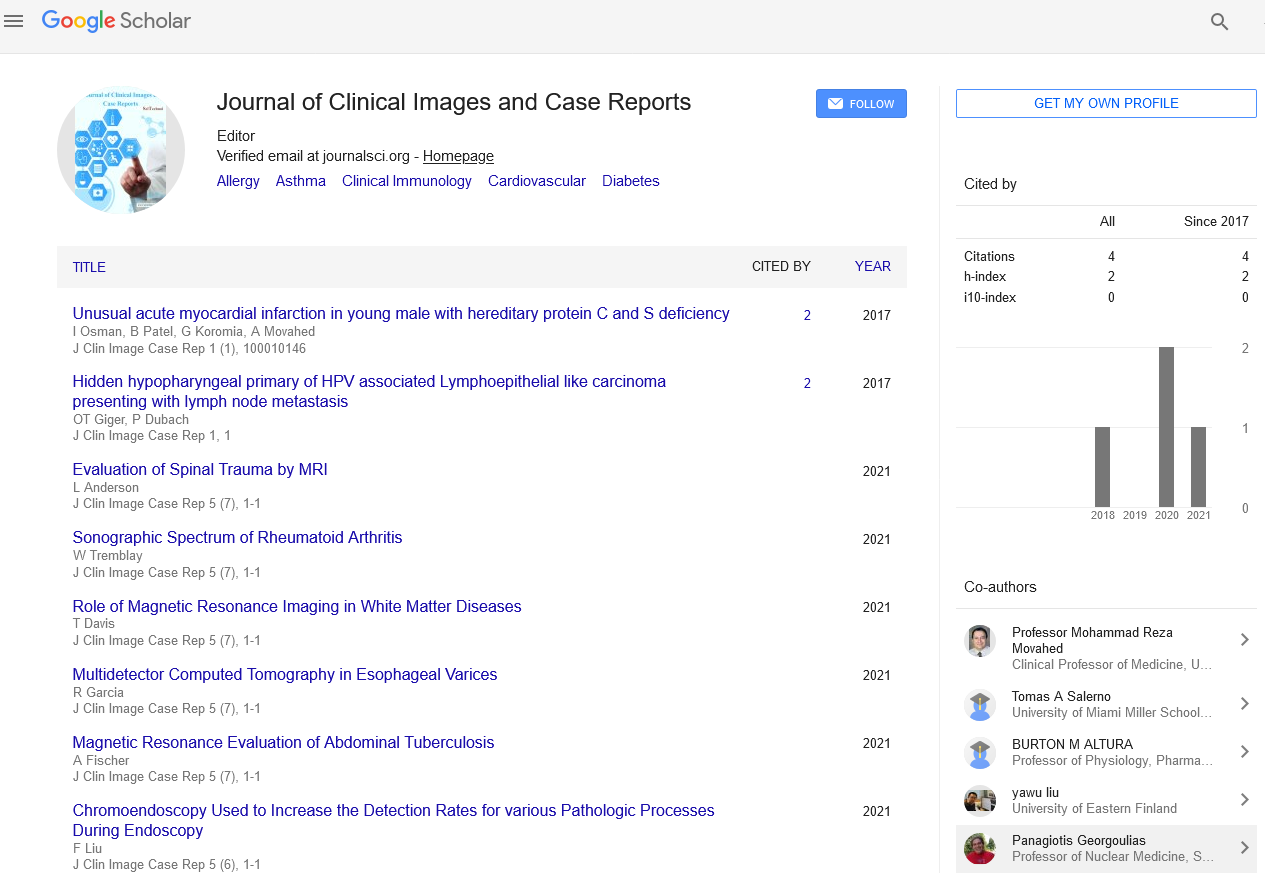Opinion Article, J Clin Image Case Rep Vol: 8 Issue: 5
Pharmacogenomics in Psychopharmacology: Personalizing Mental Health Treatment
Jeffrey Wilens*
1Department of Neural Sciences, University of Modena and Reggio Emilia, Modena, Italy
*Corresponding Author: Jeffrey Wilens,
Department of Neural Sciences, University
of Modena and Reggio Emilia, Modena, Italy
E-mail: wilensjeffrey@gmail.com
Received date: 25 September, 2024, Manuscript No. CICR-24-153589;
Editor assigned date: 27 September, 2024, PreQC No. CICR-24-153589 (PQ);
Reviewed date: 11 October, 2024, QC No. CICR-24-153589;
Revised date: 18 October, 2024, Manuscript No. CICR-24-153589 (R);
Published date: 25 October, 2024, DOI: 10.4172/CICR.1000326
Citation: Wilens J (2024) Pharmacogenomics in Psychopharmacology: Personalizing Mental Health Treatment. J Clin Image Case Rep 8:5.
Description
Pharmacogenomics is an emerging field that studies how an individual’s genetic makeup influences their response to medications. This approach has shown considerable promise in enhancing the effectiveness of mental health treatments, particularly in the field of psychopharmacology. Psychopharmacology focuses on the use of medications to treat mental health disorders and pharmacogenomics aims to tailor these treatments to the specific genetic profile of each patient, optimizing outcomes and minimizing side effects.
Mental health disorders such as depression, anxiety, schizophrenia and bipolar disorder are often treated with medications, including antidepressants, antipsychotics and mood stabilizers. However, finding the right medication and dosage for each individual can be a complex process. Often, patients must try several medications before finding one that works effectively for them and even then, the side effects can be difficult to tolerate. This trial-and-error approach can be frustrating and time-consuming.
Pharmacogenomics offers a solution to this problem by considering genetic factors that can affect how a patient metabolizes and responds to medications. Genetic variations can influence the absorption, distribution, metabolism and elimination of drugs. For example, some people may metabolize certain medications too quickly, rendering them ineffective, while others may metabolize them too slowly, leading to an increased risk of side effects or toxicity. By analyzing a patient’s genetic profile, doctors can identify these variations and select medications that are more likely to be effective and welltolerated.
Pharmacogenomic testing offers several benefits in the treatment of mental health disorders. One of the most significant advantages is the ability to personalize treatment. By understanding how a patient’s genes affect their response to medications, healthcare providers can make more informed decisions, leading to faster symptom relief and a reduction in the number of medication trials. This can improve the patient’s overall experience with treatment and reduce the emotional and physical toll that trial-and-error methods often have.
Additionally, pharmacogenomics can help to address the issue of medication side effects, which can be a significant barrier to treatment adherence. Many individuals with mental health disorders stop taking their medications due to unpleasant side effects, such as weight gain, drowsiness, or sexual dysfunction. By selecting medications that are better suited to an individual’s genetic makeup, the likelihood of experiencing these side effects can be reduced, improving medication adherence and overall treatment outcomes.
Despite its promise, pharmacogenomics in psychopharmacology also faces several challenges. The field is still relatively new and more research is needed to fully understand how genetic variations affect the treatment of mental health disorders. While pharmacogenomic testing can provide valuable insights, it is not yet a standard practice in most mental health settings. The cost of genetic testing and the limited availability of resources can also pose barriers to widespread adoption.
Pharmacogenomics holds great potential for revolutionizing the field of psychopharmacology by personalizing mental health treatment. By tailoring medications and dosages based on an individual’s genetic profile, this approach can improve treatment efficacy, reduce side effects and enhance patient outcomes. While there are challenges to overcome, including the need for more research and greater accessibility, the future of pharmacogenomics in mental health looks promising. As the field continues to evolve, personalized treatment approaches will likely become an integral part of mental health care, offering hope for better, more effective treatments for individuals with mental health disorders.
 Spanish
Spanish  Chinese
Chinese  Russian
Russian  German
German  French
French  Japanese
Japanese  Portuguese
Portuguese  Hindi
Hindi 